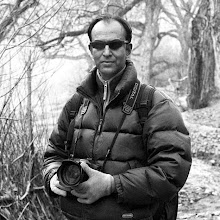Text and photography by Umair Ghani

"We are the flute, our music is all Yours; Your wind invisible sweeps through the world!"
Rumi
Lovers of the Truth, they call themselves. They deny all notions of duality and the individual self and seek Divine unity, “main nahin, sab Tu " [I’m nobody, all is You!], cries Shah Hussein. They wear black, red and green, and abstain from animal food. They whirl around the streets of Old Lahore chanting names of Allah and slogans of freedom from the worldly desire. “Dam mast qalandar, jholay lal, shah jamal, beray par”, Yasuo Osakabe writes these words to me from another world and I sit back and wonder, how silently the voice of dervishes echoes across the continents. Malangs rock!
 Malangs and dervishes are unique characters. Dramatic personalities, seemingly under some deep spiritual trance, they move away from everyday existence of desire and greed. Living in the shadows of their very own personal beliefs, they disappear from the scene as soon as the Sufi festivals end, only to be seen again after a long lapse till the next festival begins. Ishq, they claim, is the foundation of their faith. It’s a stairway, a bridge, a vehicle that never fails to take one to the desired destination. “Ishq pakka, manzil pakki”, shouts Ghulam Rasool qalandar.
Malangs and dervishes are unique characters. Dramatic personalities, seemingly under some deep spiritual trance, they move away from everyday existence of desire and greed. Living in the shadows of their very own personal beliefs, they disappear from the scene as soon as the Sufi festivals end, only to be seen again after a long lapse till the next festival begins. Ishq, they claim, is the foundation of their faith. It’s a stairway, a bridge, a vehicle that never fails to take one to the desired destination. “Ishq pakka, manzil pakki”, shouts Ghulam Rasool qalandar.
Mystic Tradition of these malangs and dervishes involves diverse beliefs and practices dedicated to Divine Love and Unity. The Truth they seek is believed to originate in the teachings of the Prophet Muhammad, but some Dervishes claim that it pre-dates Islam and adopted Islam as a suitable vehicle. Some believe that all this was essentially the result of Islam evolving in a more mystic direction. Louis Massignon claims that it is from the Qur’an, constantly recited, meditated, and experienced, that Sufism, dervishes and other religious orders proceeded. Dr S Radhakrishnan asserts that mystics are akin to Advaita Vedanta [Hindu philosophy of identity of the self and the Whole], “it believes in the non dual Absolute of God and looks upon the world as reflection of God, Who is conceived as Light.” According to him the force of Islamic Mysticism was toned down in India, molded by Hindu practices and beliefs. But malangs at Sufi Shrines are infatuated with Ishq:
Sanai
The involvement of other religions’ customs [dominantly of Hinduism] in Islamic Sufism is evident from the practices of Malangs at shrines in Punjab and Sindh. The dance, worshipping the fire, taking hash, charas with smoke, drinking bhang and other toxic shrubs is very much a gift of religious customs in the subcontinent. “Man is a Qalandar”, a dervish whirls a bowl of green whisky and m
 urids shout “Allah…”, “A man must live away from luxury. His heart is the house of God. He must never go astray in wake of desire and comfort”. “Ya Ali..!” they shout again, all at once, and take soothing sips from the bowl one by one. “Dam mastt qalandar! Jholay Lal!”
urids shout “Allah…”, “A man must live away from luxury. His heart is the house of God. He must never go astray in wake of desire and comfort”. “Ya Ali..!” they shout again, all at once, and take soothing sips from the bowl one by one. “Dam mastt qalandar! Jholay Lal!”Diwan E Shamas

2 comments:
So rich and so inspiring. The culture, the colors, and the words I read and now dance in my head. Thank you for sharing.
In Spirit from Toronto.
Elena
Couldn't add anymore than what is said. The voices, the sounds, the colors, the universe, all spin as one.
Post a Comment